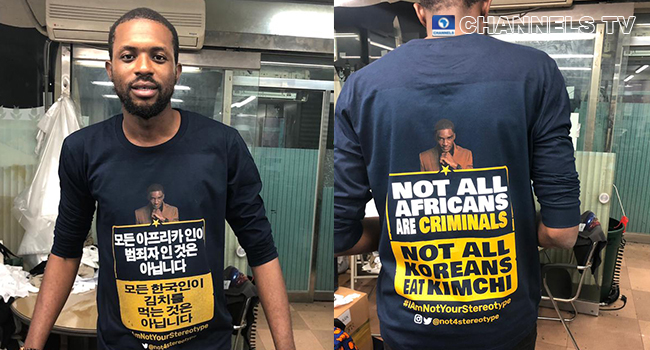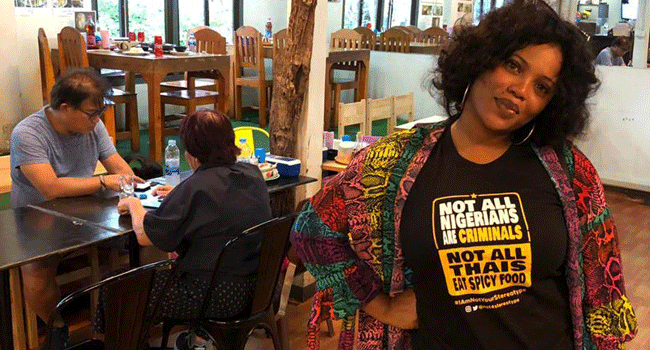
When Chris Ogunlowo boarded a flight to Dubai recently, Nigeria was in the middle of a public relations crisis – news was filtering out that the United State’s Federal Bureau of Investigations (FBI) was rounding up a network of internet criminals made up mostly of Nigerians, reinforcing a popular stereotype that most Nigerians are criminals.
Meanwhile, Ogunlowo, who is a Creative Director in a Nigerian advertising agency, was scheduled to board a connecting flight from Dubai to South Korea, where he was judging an advertising competition.
To get clarity on the gate via which he was to board, he turned to an information desk inside the airport, but his passport was taken from him and he was questioned at length, apparently because of his nationality.
“They asked me to sit somewhere, then someone came and started to query me about whether I was going to return to my country,” Ogunlowo said.
Even after he was ‘released’ and allowed to board the South Korea-bound flight, Ogunlowo couldn’t get the experience off his mind.
In Korea, he went to a supermarket to buy something but the man at the counter shooed him away. Ogunlowo felt further profiled.
So he decided to respond to it as a creative. When he shared his idea with friends, one joked that he was about to be donated to North Korea as a burnt offering
A Creative Spark
Ogunlowo’s idea was to make a T-shirt that read: “Not all Nigerians are criminals. Not all Koreans eat Kimchi” and wear it across South-Korean streets.
Kimchi, a staple in Korean cuisine, is a famous traditional side dish of salted and fermented vegetables. Although popular, not all South-Koreans enjoy it.
“As a creative, I chose to respond to this in a way that passes the message that stereotypes are wrong and, hopefully, get people to have more positive attitudes towards others,” Ogunlowo said.
On arrival, Ogunlowo spent an entire day combing Seoul, the South Korean capital, in search of plain shirts and a printer, despite battling with a knee injury. The walk left him in pain, but he was undeterred.
After finishing the printing job, he immediately changed to the new shirt.
The words on the T-shirt’s front was written in the Korean language, while the back’s version was written in English. Added to the words was the picture of a Ghanaian man, Sam Okyere, who is a celebrity in South Korea. The picture was to “expand the message to include all Africans,” Ogunlowo said. “Hopefully, his goodwill will add to amplify the idea.”
Then, in addition to the words and picture, he added an hashtag: #IAmNotYourStereotype.
Walking down Korean streets, he felt half of the population – “the ones that managed to raise their heads above their smartphones” – gazing at him. He was stopped twice for random chitchat, despite obvious language barriers. Some took his photo.
When he shared the experience on Facebook, it was shared more than a 100 times.

An Exaggerated Reputation?
Nigeria has a global reputation for online scams. The recent FBI investigation, which indicted at least 77 Nigerians, has been described as one of the largest fraud cases in US history. The possible impact didn’t go unnoticed back home.
“The action of a single Nigerian is not the action of all Nigerians … [who] are hardworking and honest people … [We] should not be tagged ‘fraudulent people’ for the misdeeds of a few,” presidential spokesman Garba Shehu, told Channels TV after the US indictment became public.
Those, who like Shehu, are irked by the stereotype are not just being patriotic.
They point to ample evidence that Nigeria doesn’t even rank among countries with the most cyber-criminals in the world.
For example, Forter, a company that operates an e-commerce fraud prevention platform, analyzed over a million online transactions over the course of 2014 to identify the countries which are the safest and the most risky for fraudulent activity online. The top five countries were Indonesia, Venezuela, South Africa, Brazil and Romania.
The FBI and its Internet Crime Complaint Centre, a mechanism for reporting fraud-related incidents, ranked Nigeria third in the world. But the US and UK ranked first and second, and both of these countries are not usually profiled as ‘fraudulent’ countries.
Ogunlowo believes that the generalisation of Nigerians as criminals is as a result of multiple factors, including the fact that Nigerians are not properly telling their stories.
“We need to have counter-narratives,” he said. “You have to be able to correct those impressions.”
Spreading The Word
Since he returned to Nigeria, Ogunlowo has received orders from across the world to customise the #IAmNotYourStereotype shirts. A Thailand version reads “Not all Nigerians are criminals; not all Thais eat spicy food.” A German version read “Not all Germans drink beer”.
He has also set up a Twitter and Instagram account to spread the word to more people.
“This may be a tiny effort in challenging & changing perceptions,” Ogunlowo said. “I hope it goes, in its way, in making the world a more open and better place.”

